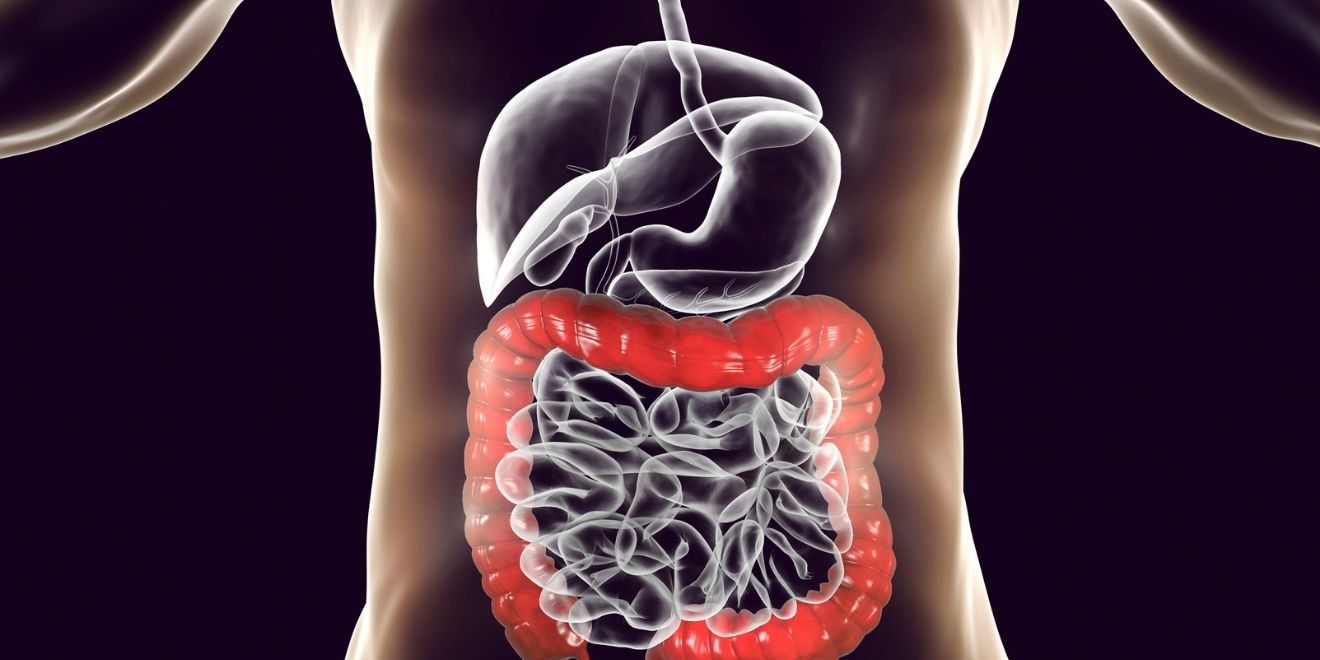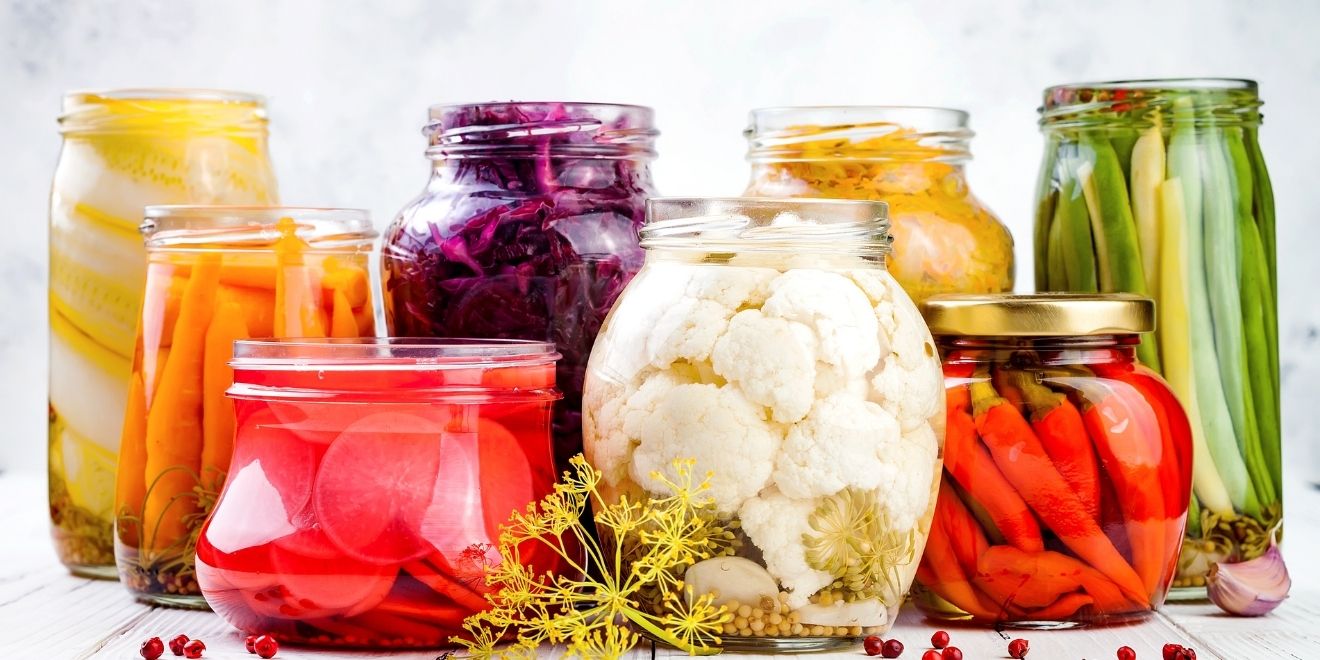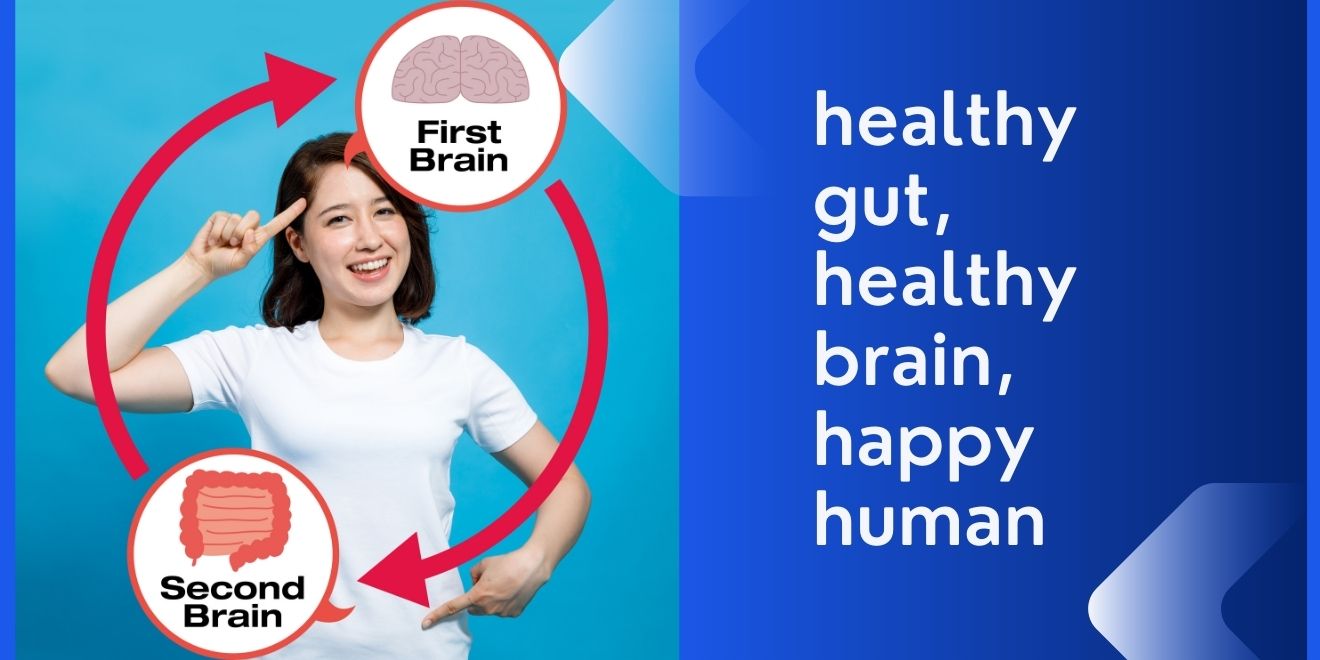Gut health is everything.
Did you ever feel nauseous right before going on stage or the butterflies when you were waiting for the exam result?
That’s a sign that there’s a deep connection between how you think and feel and your gut health. Both your gut and brain affect each other back and forth. So, it goes without saying that if you struggle with some mental health issues, you probably need to start with the gut.
You may be surprised that an unhealthy gut may be at the root of your brain disorder.
Gut-Brain Communication
The communication that takes place between your gut and brain is called the ‘gut-brain axis.’ Gut and brain connect on two levels – biochemically and physically.
Let’s look at both.
The Vagus Nerve and the Nervous System
Neurons, we all know – are the brain cells that are part of the nervous system. This system tells your body how to behave. The human brain carries roughly 100 billion neurons while your stomach carries around 500 million neurons, all of which connect to the brain’s nerves. Together this arrangement is what we call the nervous system.
The VAGUS NERVE, which is the biggest nerve that connects the gut with the brain, is responsible for the larger communication. Studies show that inhibition in this signal was a major link in various kinds of gastrointestinal problems.
Another study also found that people who had Crohn’s Disease and IBS had reduced vagal functioning.

Neurotransmitters
On a biochemical level, your gut connects with the brain via chemicals that we now know as ‘neurotransmitters.’
The production of these chemicals is what controls our feelings and emotions. For instance, serotonin – ‘The feel-good hormone’ is what gives you a sensation of happiness.
Science tells us that many of such chemicals are produced in the gut. Trillions of tiny microbes that live in your stomach are what make these chemicals.
GABA – another popular neurotransmitter that controls the feelings of fear and anxiety. Studies of mice behaviors show that certain probiotics that carry live gut bacteria can boost GABA production. This links to reduced anxiety and episodes of depression.
Link Between Gut Microbes and Inflammation
The gut-brain axis also connects via the immune system. You should know that the gut microbiota connects deeply with the immune system and controls inflammation. It tells the body what to keep and what to eliminate. A confused or out of control immune system can lead to chronic and systemic inflammation.
This can lead to all kinds of neurological and mental health conditions such as
- Depression
- Anxiety
- Alzheimer’s
- Autism
- Schizophrenia
- Dementia
- Even learning disorders
Too much of LPS (Lipopolysaccharide) – a toxin produced by bad bacteria – leaking from the gut into the blood can lead to inflammation. This results from the breaking of the gut barrier that leads to a condition called a ‘leaky gut’.
Studies show that high levels of LPS in blood link to severe depression, schizophrenia, and dementia.

Gut bacteria play a significant role in controlling brain and emotional health. Naturally, improving gut microbiota can and should improve brain/mental health.
Probiotics
Probiotics are the strains of live bacteria that impart excellent health benefits. It’s one of the most powerful things you can do to improve your gut.
Some probiotics work better than others for brain health. Nutritionists and doctors call them ‘psychobiotic.’ Their regular intake can improve anxiety, stress, depression, and other behavior and mental health issues.
In one study, people suffering from IBS and mild anxiety/depression showed significant improvement when put on the probiotic Bifidobacterium Longum for six weeks.

Prebiotics – which are the food of the gut bacteria – may also positively impact brain health by reducing stress hormones. Famous prebiotic foods are – cabbage, leafy vegetables, bananas, cherries, artichoke, celery, etc.
What Foods Help the Gut-Brain Axis?
Some foods feed the gut bacteria, while others add to the total population. A few of the food groups are particularly beneficial for the gut-brain axis. Their regular consumption should lead to a major improvement in symptoms of mental health disorders:

5 of the best foods for a healthy functioning gut-brain network are:
- Omega-3 Fats: This fat is naturally present in oily fish. It’s a major booster to brain health. Countless studies show that both animals and humans – when on a diet rich in omega-3s, can improve gut microbiota and reduce the chances of brain disorders.
- Fermented Foods: These are the superfoods in the context of gut health. Foods like kefir, miso, kimchi, yogurt, sauerkraut, and certain kinds of cheeses are loaded with lactic acid and other beneficial gut bacteria. These foods can alter brain activity to reduce gut issues and improve brain health.
- High-Fiber Foods: nuts, seeds, fruits, vegetables, and whole grains are all loaded with dietary fiber. These foods act like a brillo pad for the intestines, which keeps them well-functioning and clean. Fibrous foods also feed gut microbiomes. All and all, they can significantly reduce the symptoms of stress and anxiety.
- Foods rich in polyphenol: Green tea, coffee, cocoa, and olive oil is rich in polyphenols. These are the chemicals that your gut bacteria digest. Their regular consumption may improve cognitive functioning.
- Tryptophan-rich foods: Turkey, cheese, and eggs are all high in tryptophan, which is an essential amino acid that converts into serotonin – a neurotransmitter.

Final Thoughts
There’s no doubt that gut health ties closely with brain health and how they impact mood and mental health conditions. Therefore, it’s always a wise decision to start by taking care of your gut if you want to enjoy brain health.


